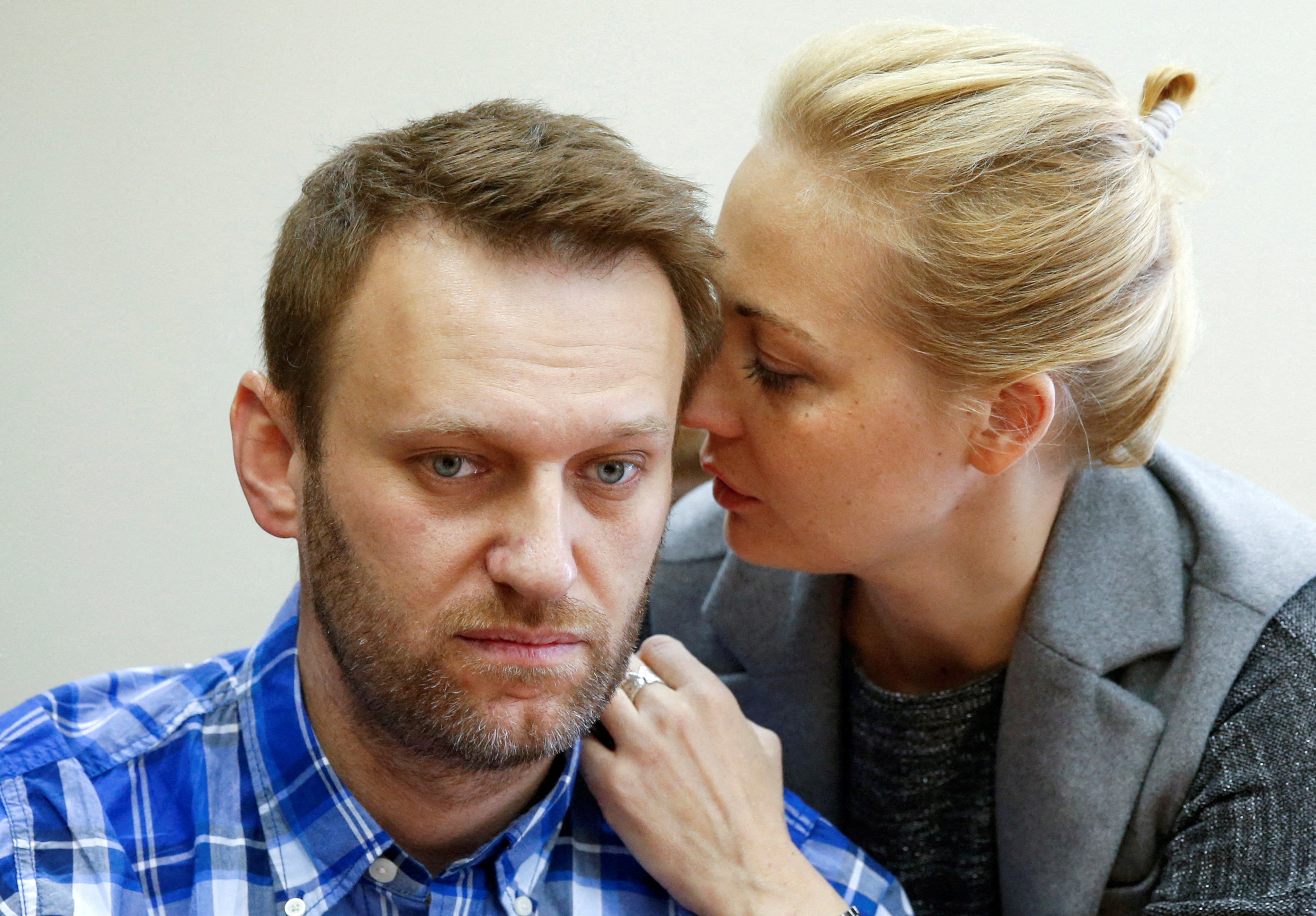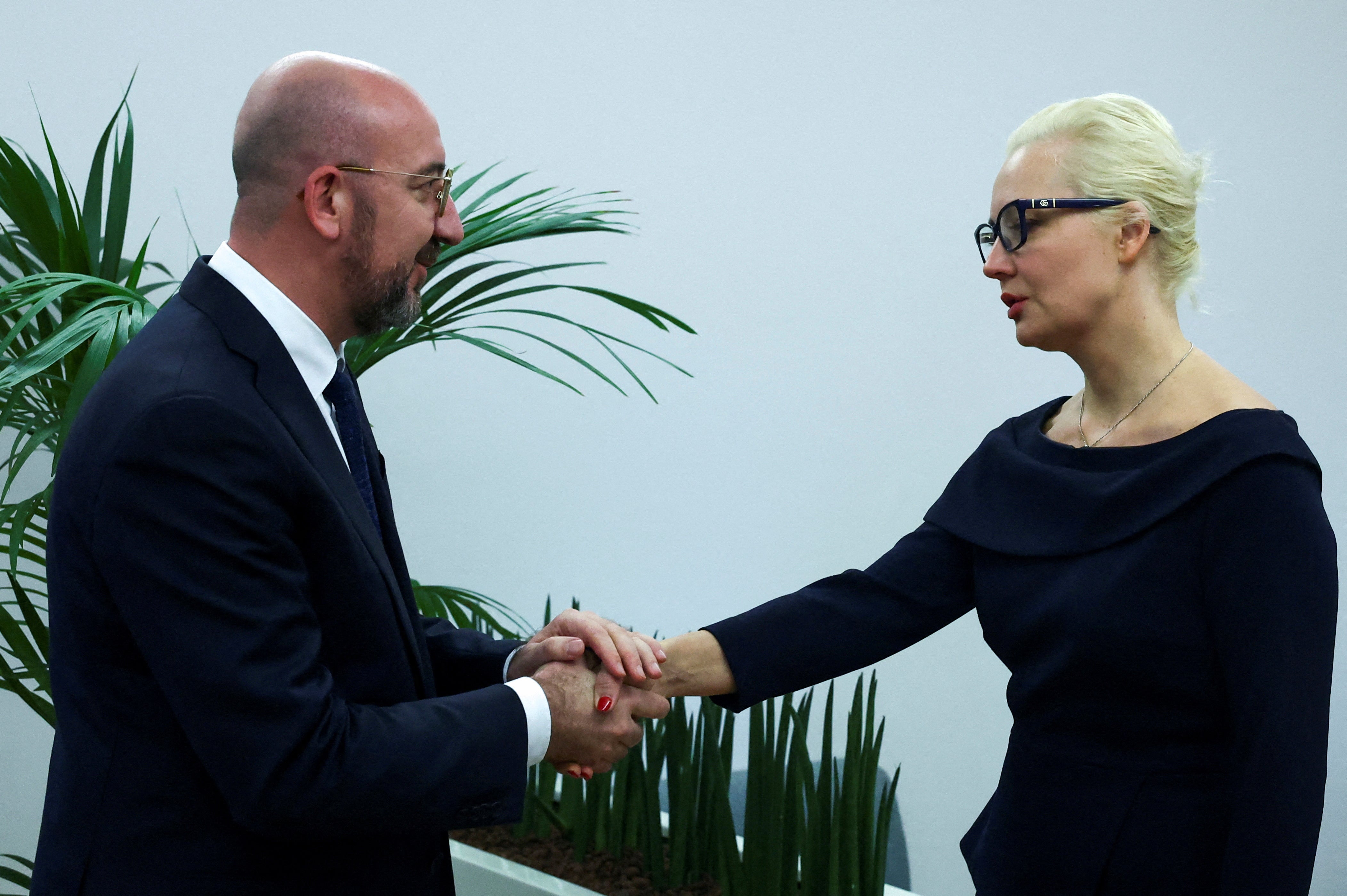Who is Yulia Navalnaya – the woman vowing to carry forward Navalny’s battle against Putin
Until Navalny’s death, his 47-year-old wife steered clear of politics and played down the idea of taking over as leader of Russia’s opposition
Before the sudden death of her husband Alexei Navalny in a grim Arctic prison last week, Yulia Navalnaya had always played down the suggestion that she would one day take over as leader of Russia’s opposition.
But on Monday, as the 47-year-old widow alternated between rage and grief, she gave a powerful speech signalling that she would be there to help lead a shell-shocked opposition – a job fraught with danger.
"I want to live in a free Russia, I want to build a free Russia," said the mother-of-two in a video message. Stepping out of the shadow of her dead husband, she called on his supporters to “share the rage” and “stand” with her.
Filmed from a dimly lit room in an undisclosed location outside of Russia, the message in the video was both emotional and political.
"I know it seems that it is no longer possible (to continue the struggle)," she said.
"But we need more. To gather all together in one strong fist and hit this crazed regime with it – Putin, his friends, bandits in uniform, thieves and murderers who crippled our country.
"I urge you to stand next to me," she said in the nine-minute video that has since gathered around five million views. "I ask you to share the rage with me. Rage, anger, hatred towards those who dared to kill our future."

Up until now Ms Navalnaya, a graduate of the prestigious Plekhanov Russian University of Economics, has largely steered clear of public politics, as she stressed her role was to support her husband and hold their family unit together.
Daughter of notable scientist Boris Ambrosimov, Ms Navalnaya and Navalny were both once members of the liberal Yabloko party. They met while she was on holiday in Turkey in 1998 and married two years later, going on to have a daughter, Daria, and a son, Zakhar.
While always making clear that she shared his anti-Putin views, she had limited her public appearances and statements to key turning points in his life, advocating for his release and humane treatment, before retreating from public view again.
Also a former bank employee, she stood by his side for years at protests, attended court hearings, was herself detained several times, and helped Navalny survive and recover from what Western doctors said was a nerve agent poisoning attempt on his life in 2020.
She was present in court on 2 February 2021, when Navalny was sentenced to three-and-a-half years in prison for violating the terms of his parole in a 2014 case for embezzlement. He used his hands to form the shape of a heart as she looked on at him in a glass courtroom cage, her mouth covered with Covid mask.
After a judge read the verdict, subtracting the 10 months he had spent under house arrest from his original sentence, Ms Navalanya took off her mask, smiled, waved, and then shrugged. “Don’t be sad! Everything’s going to be alright!” Navalny shouted out to her.
Should she take on her husband’s mantle, Ms Navalnaya would follow a path trodden by activist widows in other parts of the world, from US civil rights campaigner Coretta Scott King to Corazon Aquino of the Philippines. Closer to home, exiled Belarusian opposition leader Sviatlana Tsikhanouskaya reluctantly stood for president after her husband Syarhei was jailed in 2020.

Continuing Navalny’s battle, however, is fraught with difficulty and danger as Moscow will inevitably be watching Ms Navalnaya’s every move.
Any attempt to lead the opposition from within Russia is almost certain to lead to arrest, but any leader doing so from abroad would be cast by the Putin administration as a foreign puppet controlled by Western intelligence.
"If (Navalnaya) does this in Russia, she will have a high chance of ending up where her late husband ended up," Alexei Levinson, head of sociocultural research at Russian pollster Levada Center, told Reuters.
"If she does this from abroad, the effect will be the same as for all the rest of those who somehow try to influence the processes taking place in Russia from abroad, and in my opinion, do not achieve very much."
Tatiana Stanovaya, founder of the RPolitik analysis firm, said Ms Navalnaya’s statement was "an unambiguous bid for an independent political role".
"A great deal will depend on what she has to offer. Not as the widow of a remarkable politician tortured to death, but as an independent figure," said Ms Stanovaya.
"Will she be able to find her own political style, her content, and a team that will not alienate people? Time will tell."
Additional reporting by agencies
Join our commenting forum
Join thought-provoking conversations, follow other Independent readers and see their replies
Comments
Bookmark popover
Removed from bookmarks